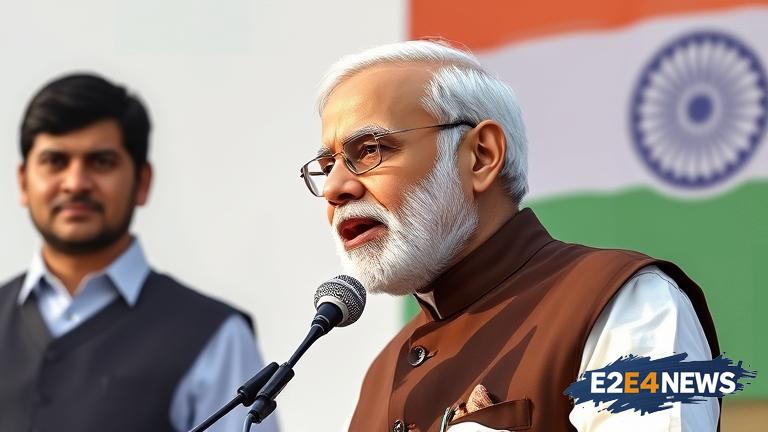The Speaker of the Jammu and Kashmir Assembly has recently reaffirmed Prime Minister Narendra Modi’s promise to restore statehood to the region. This move has been met with a mix of emotions, ranging from optimism to skepticism, among the local population. The assurance was first made by PM Modi during a meeting with a delegation of Jammu and Kashmir politicians in June 2021. Since then, there have been numerous discussions and debates about the feasibility and timeline of restoring statehood to the region. The Speaker’s reiteration of the promise has sparked hope among locals, who have been demanding the restoration of statehood for several years. The demand for statehood has been a long-standing issue in Jammu and Kashmir, with many residents feeling that the region’s special status was unfairly revoked in 2019. The revocation of Article 370, which granted special autonomy to Jammu and Kashmir, has been a contentious issue, with many locals arguing that it was done without their consent. The restoration of statehood is seen as a crucial step towards addressing the grievances of the local population and promoting economic development in the region. However, the process of restoring statehood is complex and involves several stakeholders, including the central government, state politicians, and local residents. The Speaker’s statement has been welcomed by many politicians and residents, who see it as a positive step towards resolving the issue. Nevertheless, some skeptics have expressed doubts about the feasibility of restoring statehood, citing the complexities involved in the process. Despite these challenges, the Speaker’s reiteration of the promise has generated hope and optimism among locals, who are eager to see the restoration of statehood become a reality. The issue of statehood has been a major point of discussion in Jammu and Kashmir, with many residents feeling that it is essential for the region’s development and prosperity. The central government has been facing pressure from local politicians and residents to restore statehood, and the Speaker’s statement is seen as a response to these demands. The restoration of statehood is expected to have significant implications for the region, including the promotion of economic development, the creation of jobs, and the improvement of infrastructure. However, the process of restoring statehood will require careful planning and coordination among various stakeholders, including the central government, state politicians, and local residents. The Speaker’s statement has been seen as a positive step towards resolving the issue, and many locals are hopeful that the restoration of statehood will become a reality in the near future. The issue of statehood has been a major challenge for the central government, which has been facing criticism from local politicians and residents for its handling of the issue. The restoration of statehood is seen as a crucial step towards addressing the grievances of the local population and promoting economic development in the region. The Speaker’s reiteration of the promise has generated hope and optimism among locals, who are eager to see the restoration of statehood become a reality. The central government has been working to address the concerns of local residents and promote economic development in the region. The restoration of statehood is expected to be a major step towards achieving these goals, and many locals are hopeful that it will become a reality soon. The issue of statehood has been a major point of discussion in Jammu and Kashmir, with many residents feeling that it is essential for the region’s development and prosperity. The Speaker’s statement has been welcomed by many politicians and residents, who see it as a positive step towards resolving the issue. The restoration of statehood is expected to have significant implications for the region, including the promotion of economic development, the creation of jobs, and the improvement of infrastructure.
